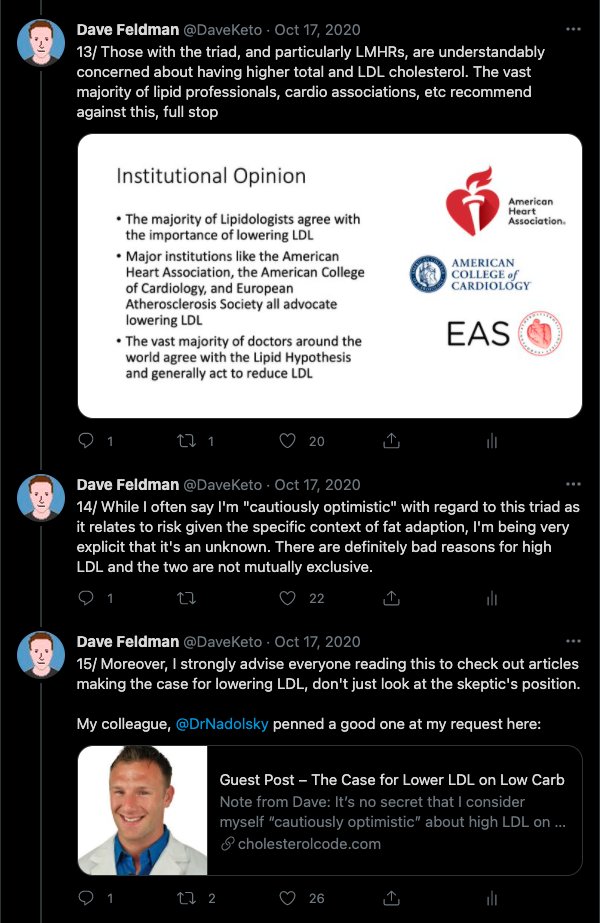
1/ Okay, let's talk ANGPTL3-4-8 model. Mega thx to @nicknorwitz for getting well ahead of me on the angptls and their influence on LPL.
Here's the central figure, which we'll be referencing.
(Don't worry if you get lost, I'll unpack this more below..)
royalsocietypublishing.org/doi/10.1098/rs…
Here's the central figure, which we'll be referencing.
(Don't worry if you get lost, I'll unpack this more below..)
royalsocietypublishing.org/doi/10.1098/rs…

2/ "Lipoprotein lipase (LPL) is a rate-limiting enzyme for hydrolysing circulating triglycerides (TG) into free fatty acids that are taken up by peripheral tissues."
Translation: LPL is like a key cells use to open lipoprotein boats to offload their fat-fuel cargo (TG)
Translation: LPL is like a key cells use to open lipoprotein boats to offload their fat-fuel cargo (TG)
3/ "Postprandial LPL activity rises in white adipose tissue (WAT), but declines in the heart and skeletal muscle, thereby directing circulating TG to WAT for storage; the reverse is true during fasting"
Sure, post-meal we do more storing in fat via LPL, otherwise we do less.
Sure, post-meal we do more storing in fat via LPL, otherwise we do less.
4/ I actually presented on this a couple months ago regarding LPL in particular.
But if we think of cells being the ones to manage their own expression of LPL...what influences whether the cells will do so in the first place? How does the cell *know* the right levels to express?
But if we think of cells being the ones to manage their own expression of LPL...what influences whether the cells will do so in the first place? How does the cell *know* the right levels to express?

5/ Well, we're in the process of finding out...
But one substantial impact we've learned a lot about recently are ANGPTL (short for "angiopoietin-like") 3, 4, and 8. All three of these are LPL *inhibitors*.
But one substantial impact we've learned a lot about recently are ANGPTL (short for "angiopoietin-like") 3, 4, and 8. All three of these are LPL *inhibitors*.
6/ "Angptl3-4-8 model: feeding induces Angptl8, activating the Angptl8–Angptl3 pathway, which
inhibits LPL in cardiac and skeletal muscles, thereby making circulating TG available for uptake by WAT, in which LPL activity is elevated owing to diminished Angptl4;..."
inhibits LPL in cardiac and skeletal muscles, thereby making circulating TG available for uptake by WAT, in which LPL activity is elevated owing to diminished Angptl4;..."
7/ "... the reverse is true during fasting, which suppresses Angptl8 but induces Angptl4, thereby directing TG to muscles."
So ANGPTL4 puts the breaks on LPL for our fat cells,
ANGLPTL3 & 8 put the breaks on LPL for our muscle/cardiac cells.
So ANGPTL4 puts the breaks on LPL for our fat cells,
ANGLPTL3 & 8 put the breaks on LPL for our muscle/cardiac cells.
8/ So look again at figure 1 above for the fasting state (top half). ANGPTL4 is slowing uptake of fat into fat cells by LPL, which makes perfect sense given it leaves more for cardiac/muscle.
9/ Conversely, when fed (bottom half) ANGPTL3 & 8 are slowing down uptake of fat for cardiac/muscle from lipoproteins via LPL, leaving more of these available for the fat cells to store instead.
10/ There's still quite a bit I'm not covering and hence why it's worth reading the paper.
But this highlights an important tenant of the #LipidEnergyModel we're working on – which is the crucial signaling relationship between adipocytes and the liver to manage lipid trafficking
But this highlights an important tenant of the #LipidEnergyModel we're working on – which is the crucial signaling relationship between adipocytes and the liver to manage lipid trafficking
PostScript: Another shout out to @nicknorwitz for his extraordinary collaboration on the model. If you're not already following him, you should be.
• • •
Missing some Tweet in this thread? You can try to
force a refresh





